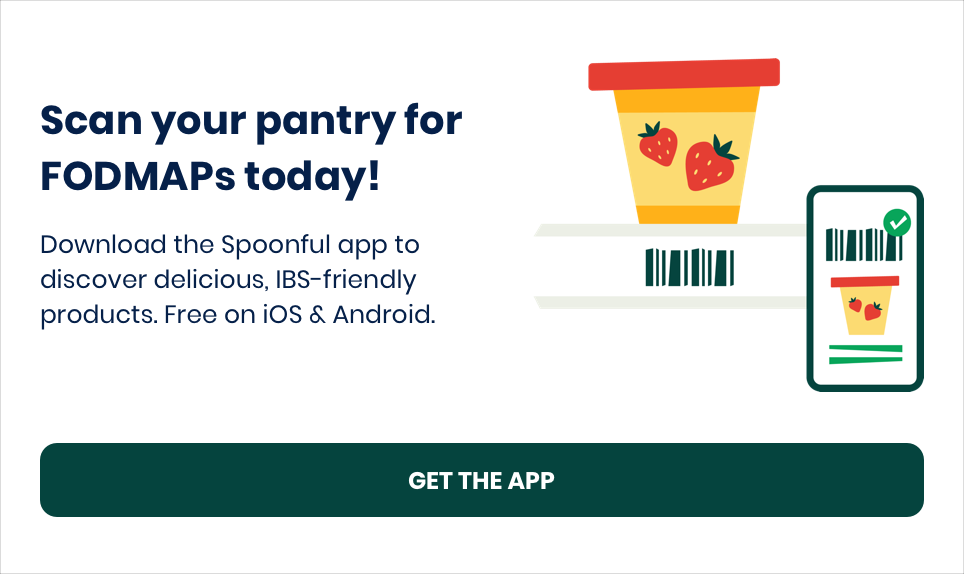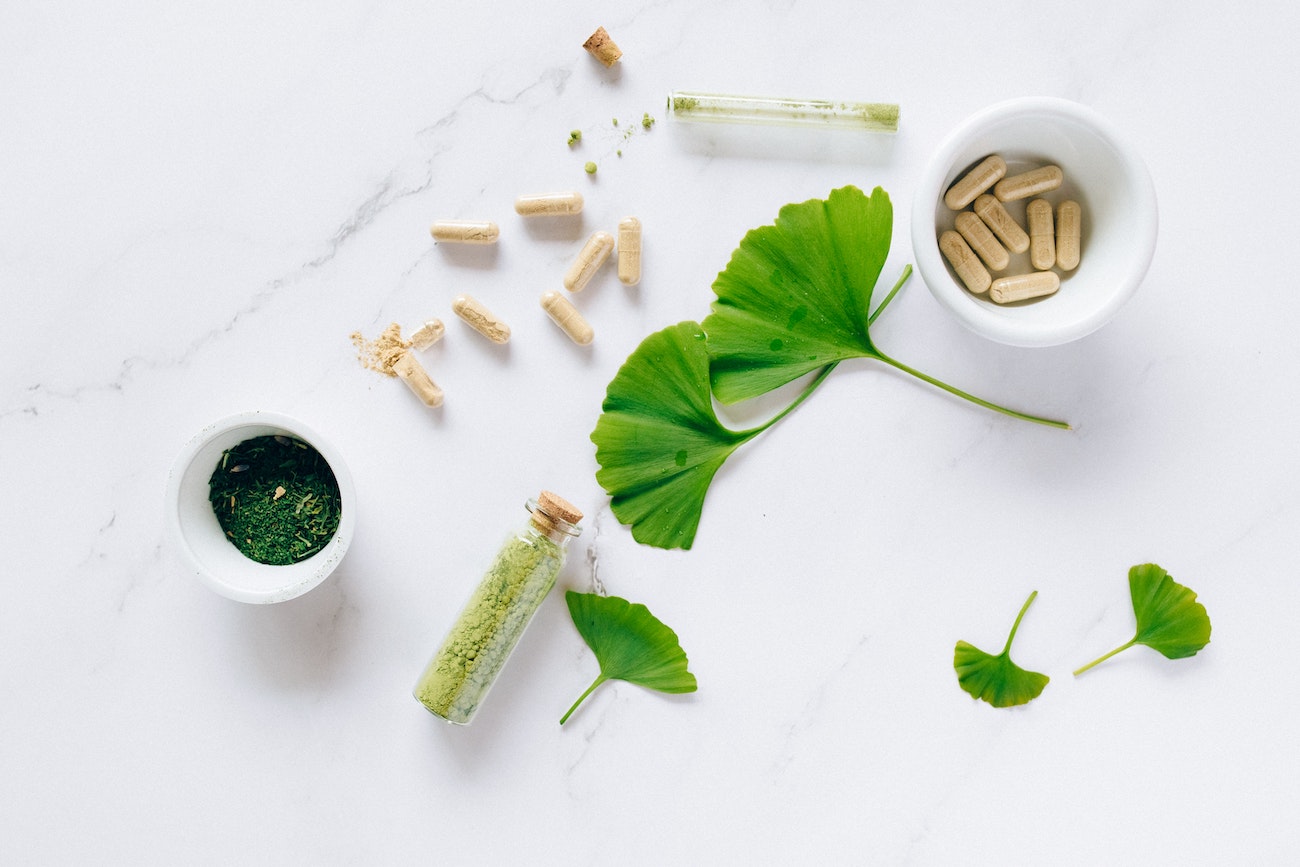Supplement use is common for those with irritable bowel syndrome (IBS) as many of us are looking to fill in nutritional gaps and improve our digestive health. If you find yourself wondering if you can continue to take your current supplements on the low FODMAP diet or are interested in adding a new one to your regimen, this article is for you.
The honest truth is that we do not know the effects of many supplements on IBS as the majority have not been tested by Monash. Therefore, many healthcare providers, including myself, are using our best clinical judgement based on the ingredients and known side effects. Quite often the IBS trigger lies within the inactive ingredients as high FODMAP ingredients are often added to provide sweetness, flavor, and fiber — especially in chewable supplements.
If it isn’t absolutely essential to your health, most clinical experts do not recommend adding a supplement to the low FODMAP diet. This is especially true for supplements aimed at improving digestive health as they can muddle the results of your dietary experiment. How so? Well, it can be harder to tell if the supplement or the low FODMAP diet is affecting your IBS symptoms – good or bad. However, the exception would be when your healthcare provider recommends a specific supplement as they are more familiar with your individual needs.
Which supplements may be encouraged be your healthcare provider?
Peppermint capsules
Peppermint has been shown to help with IBS flare ups as it can reduce abdominal pain, gas, bloating, and constipation. My favorite brands are IBgard, Pepogest, and TummyDrops.
Digestive enzymes
These may be recommended AFTER completion of the low FODMAP elimination and reintroduction phase and your personal FODMAP intolerances have been identified. These specific digestive enzymes may be beneficial and are encouraged to take at first bite.
Lactase enzymes
This enzyme can help those with lactose intolerance if they want to enjoy some lactose in their diet. Be sure to read ingredients to avoid those containing high FODMAP ingredients since mannitol is quite often added.
Alpha-galactosidase
This enzyme may help reduce the unpleasant side effects of galactans for those with a galactan intolerance. Beano is an example, yet not my favorite brand as it contains mannitol. Look for those with 300 GALU or more for best results.
Xylose isomerase
This enzyme may be helpful for those with a fructose intolerance. This is a fairly new enzyme in the USA and can be found online.
Fiber supplements
There are several fiber supplements that are IBS friendly. Fiber, surprising to many, can be helpful for those with IBS-C and IBS-D. Again, this is best discussed with your healthcare provider before adding to your routine. Fiber can help provide bulk, which may be helpful for those with constipation while also helping to bind stools. Some commonly recommended fiber supplements include:
- Psyllium (ex: Metamucil and Konsyl)
- Partially Hydrogenated Guar Gum (PHGG) (ex: Regular Girl)
- Methylcellulose (ex: Citrucel)
- Acacia fiber (ex: Heather’s Tummy Fiber Organic Acacia Senegal)
Probiotics
Many of my clients have tried probiotics at some point. Unfortunately, they rarely result in amazing improvements of IBS symptoms. If my clients would like to take a probiotic, I typically follow the bellow blueprint:
- Guide them towards one shown to be helpful for their primary symptoms.*
- Recommend they continue with their current probiotic if no high FODMAP ingredients are added.
- Encourage them put their probiotic on hold.
Align and Visbiome (previously known as VSL-3) are a few strains that have shown some beneficial effects on IBS symptoms.
Always read the label
What should you do if you really want to continue taking your supplements? First, review each product with your healthcare provider to ensure appropriateness. Once approved, scan the UPC code with the Spoonful app to see if any high FODMAP ingredients are flagged.

Ingredients to watch out for
Sugar alcohols
These are polyols, aka the “P” in FODMAP. These additives often end in -tol and are used to provide flavor and sweetness. Sugar alcohols are most often spotted in chewables, liquids, melts, bars, and “sugar-free” supplements as sugar alcohols provide fewer calories, sugars, and carbohydrates. Here are a few to be wary of:
- Isomalt
- Mannitol
- Maltitol
- Sorbitol
- Xylitol
Erythritol is considered a sugar alcohol, however it is better absorbed than other varieties. It has not been tested by Monash and may be best to approach with caution as it may trigger symptoms in some sensitive individuals.
High FODMAP Sweeteners
- Agave (in quantities above 7 grams)
- Crystalized fructose
- Fructose
- Fruit and vegetable juice concentrates
- High Fructose Corn Syrup (HFCS)
- Honey (in quantities above 7 grams)
High FODMAP fibers
Prebiotic fibers are quite often added to supplements as popularity of gut health is on the rise. Be careful of the below ingredients as they are quite often added to probiotics.
- Chicory root (fiber or extract)
- Fructooligosaccharides (FOS)
Lactose-containing ingredients
If the carbohydrate or sugar content is 1 gram or less, lactose is not present in a quantity large enough to induce an IBS symptom. That said, if it is greater than 1 gram, be wary of the below:
- Lactose
- Whey
- Milk solids
- Milk powder
Other possible gut irritants
These ingredients have been known to have an effect on the GI tract. It would be best to avoid supplements containing these ingredients unless advised by your healthcare provider.
- Aloe latex can cause abdominal cramping and diarrhea.
- Castor oil may cause abdominal pain, cramping, diarrhea, and nausea.
- Cascara sagrada is a stimulant laxative.
- Chamomile – this is a high FODMAP ingredient
- Iron supplements can cause constipation in some individuals.
- Magnesium is likely to affect bowel habits in doses of 250mg or more as it is poorly absorbed.
- Polyethylene glycol also known as Miralax is an osmotic laxative.
- Senna is a stimulant laxative
My personal observations as an IBS patient
Many supplement labels contain powders of high FODMAP fruit and vegetables. It is unlikely that a few milligrams of let’s say cherry powder would trigger IBS symptoms as these portions are inconsequential. Ever since Monash has given the green light to very small portions of many fruits and vegetables, I feel even more confident giving supplements with high FODMAP vegetable and fruit powders a pass. If fruit and vegetable powders are only used for color, these are definitely not of concern.
Also worth noting – did you know that the Monash app has a dietary supplement category? Items listed in this category include acai, protein powders, and fiber supplements.
Want more protein options? Check this out.
I hope this article sheds some light on a sometimes confusing topic. As you can see, supplements can be to blame for triggering IBS symptoms. Be sure to talk with your healthcare provider to ensure these should be continued during the low FODMAP diet and beyond. Best of luck!!

What supplement is a neutral supplement we can use?
If FOS in probiotics is listed in mg, what is the max dose of FOS I can tolerate?